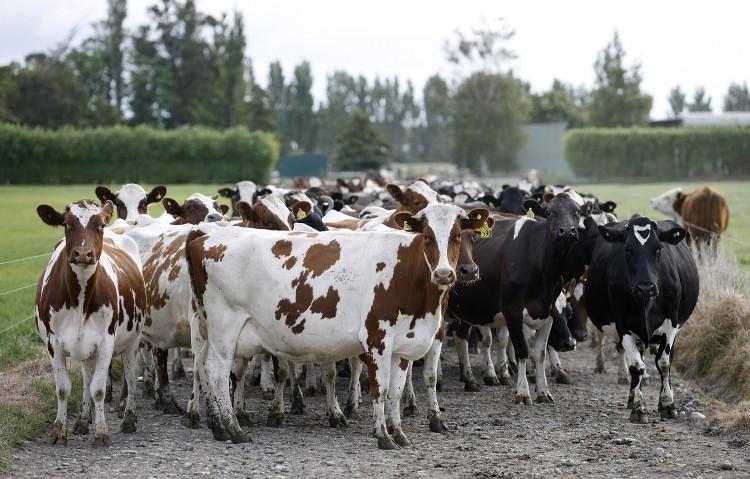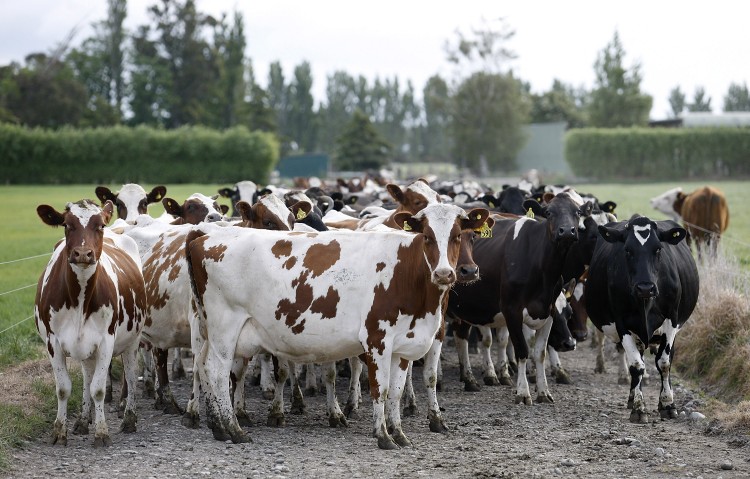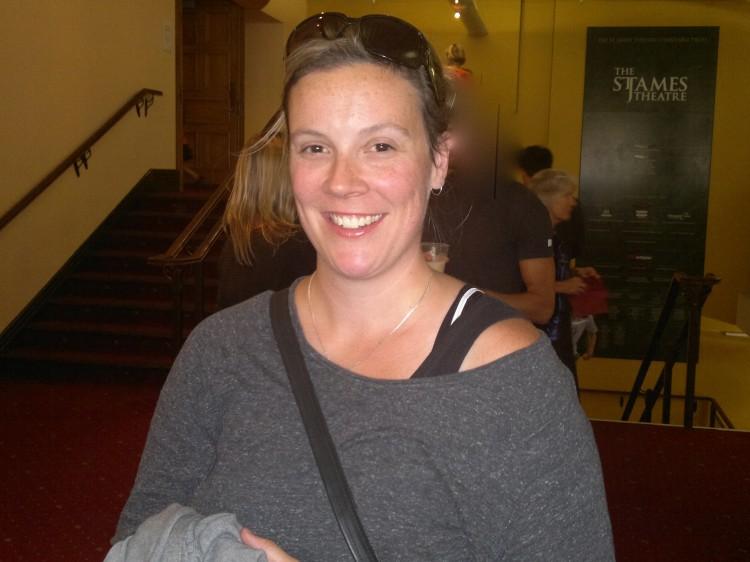AUCKLAND, New Zealand—With too many mouths to feed and agriculture production suffering from out-of-control pollution, the Chinese regime has sought to gain control of land in other countries. The consequences of the sale of 16 large dairy farms in New Zealand to a Chinese conglomerate have alarmed experts and some politicians.
The Overseas Investment Office (OIO) gave its tick of approval last Friday to the Shanghai Pengxin Group to buy 16 dairy farms owned by the Crafar family. The company’s application had been in limbo for nine months.
The sale was made under the auspices of a Free Trade Agreement (FTA) signed in 2008 that gave China Most Favoured Nation status.
Prime Minister John Key has asserted that the government had no legal reason to stop the sale going through, despite opposition from the majority of Kiwis, other political parties, iwi, and farming groups.
“New Zealand has very strict legislation when it comes to overseas purchase of New Zealand farmland,” the prime minister told the financial company Interest.
He said the Chinese application “well and truly exceeded all of those conditions.”
However, Jane Kelsey, Auckland University law professor warned, “The same could be applying to any of the major foreign investors with whom we have FTA because the non discrimination provision entitles one country’s investors under those agreements to the best treatment that’s been given to any other country’s investors.”
Burgeoning Populations
The bid for the Crafar farms, made in the name of Milk New Zealand Holdings, a subsidiary of Shanghai Pengxin, is the second by a Chinese-backed company after May Wang Natural Dairy was turned down by the OIO in 2010 under the good character provision.
Shanghai Pengxin Group is an industrial conglomerate with interests in real estate development, agribusiness, mining, and infrastructure construction.
China is one of a number of overseas countries including India that are systematically buying up or leasing large tracts of farmland in principally third world countries as well as developed countries to feed their burgeoning populations.
However, Bryan Gould, former British Labor MP and vice chancellor of the University of Waikato, says that there is more to it.
Chinese Investors ‘Farsighted’
Gould says that China is “farsighted” and realizes that its international trading success will not last forever.
“They want actual control of the productive facilities,” he said.
“I think when the Chinese buy these assets they intend to hold them really for a very long time if not forever and to integrate them into the Chinese economy.”
“It is a matter I think of quite considerable concern,” said Gould. “If we are weak-kneed enough to allow this to happen, it is hard to see how we are going to stop this happening in the future.
Productive Land Sold
John Key has attempted to calm fears that large tracts of land will continue to fall into overseas hands.
“From New Zealand’s point of view I wouldn’t want to see enormous tracts of land being sold regularly, week after week, he told the financial company Interest.
“I don’t think that is the case in New Zealand,” said the prime minister, who added that the bid should be seen as “a positive for some farms that were very badly run [and] that didn’t meet environmental conditions and were in [receivership].”
However, Key’s belief that perhaps less than 1 percent of New Zealand land has gone into overseas ownership does not paint the whole picture, said Gould.
The 1 percent he said includes areas such as the Southern Alps. “The actual percentage that has gone into foreign ownership of productive agricultural land … is about 7 or 8 percent.”
Precedent Set
Kelsey said there is no going back on this deal or on the precedent that has been set.
The government could have been faced with an international lawsuit for breach of the FTA had it declined the Shanghai Pengxin purchase, she said.
Declining the application under “good character” standards, as in the May Wang case, “would have created an enormous diplomatic furor,” Kelsey said.
Feelings of shame generated by such an action alone would have led to legal action by the Chinese “and the government would have done anything to avoid that,” said Kelsey.
The Chinese state’s interest in the Crafar deal was to set a precedent for further applications to buy land, she said.
Kelsey said that in the negotiations for the FTA it was clear the Chinese were mainly interested in natural resources, particularly farmland. “The relationship between the Chinese government and its major investors is ... quite intimate,” Kelsey said.
Outrage
The Maori Party has also been outraged by the sale of the farms to foreign investors and by the lack of consultation.
“Iwi are natural partners of the crown, with cultural traditions of inter-generational ownership and protection of land and natural resources. They should have a right of first refusal, in accordance with treaty principles,” said co-leader Dr. Pita Sharples.
Winston Peters, leader of the N.Z. First Party decried the government’s decision to delay the announcement of the sale until after last year’s November elections and called it “economic treason.”
Peters said every dairy farmer in New Zealand knows the best way to get a good price for land is to offer it to the neighbours.
“The farms are spread over a wide area yet they were offered as a single block. This makes absolutely no sense and there is outrage in the rural sector about the way this deal is being handled,” said Peters in a press release.
But John Key said, “Very strict criteria were set and those criteria were met.”





